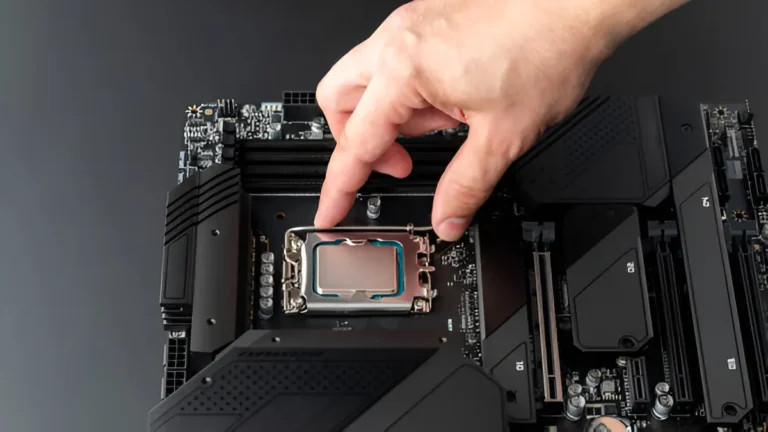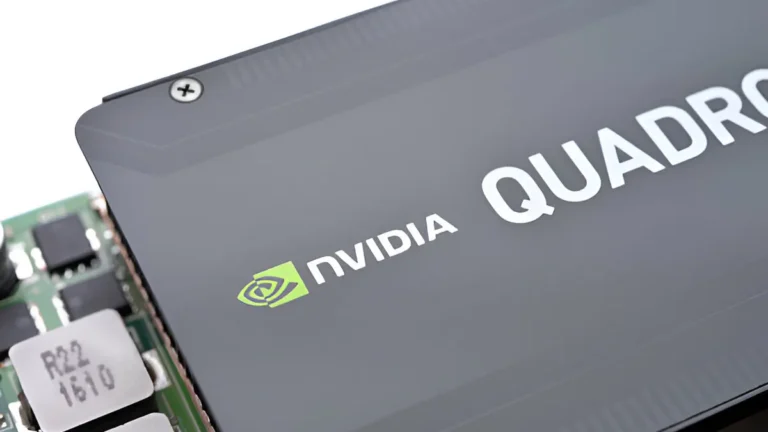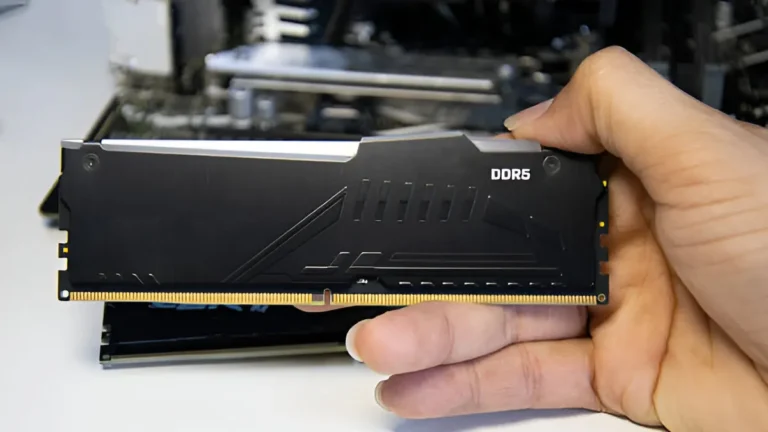Are you upgrading from 1080p but prefer a transition to 1440p instead of moving directly to 4K? The leap to 4K demands approximately 40% greater GPU processing power and higher system cost, while 1440p delivers a balanced performance gain with 78% higher pixel count (3.7 million vs. 2.1 million). According to TechSpot benchmark data from 2023, 1440p retains up to 60% higher average frame rates compared to 4K, making it a practical upgrade path from 1080p.
Resolution directly determines hardware configuration. 1440p gaming requires monitors with refresh rates of 144Hz or higher, a mid-tier or high-tier GPU such as NVIDIA GeForce RTX 4070 or AMD Radeon RX 7800 XT, and a CPU with high single-core frequency, expanded L2+L3 cache capacity, and 6 to 16 physical cores depending on workload. Compatibility with the motherboard platforms (AMD AM5 or Intel LGA1700) and GPU is also required. Selecting a CPU with these attributes ensures consistent frame delivery in both eSports titles such as CS:GO and Valorant, and AAA titles such as Cyberpunk 2077 or Starfield.
Budget allocation, manufacturer ecosystem, and upgrade path longevity are critical factors when choosing a CPU. Examples of CPUs suited for 1440p gaming include AMD Ryzen 5 7600X (6 cores, 12 threads, 38MB cache, 105W TDP, optimized for eSports performance), Intel Core i5-13600K (14 cores with hybrid design, 20 threads, high value in gaming workloads), AMD Ryzen 7 7700X (8 cores, 16 threads, effective for multitasking and simultaneous streaming), and Intel Core i7-13700K (16 cores, 24 threads, suited for AAA gaming and parallel productivity tasks).
Each CPU offers specific strengths depending on workload and budget, so direct comparison is essential. For example, TechPowerUp benchmark results show the i5-13600K averaging 160 FPS in Assassin’s Creed Valhalla at 1440p, while the Ryzen 7 7700X delivers 148 FPS but achieves higher throughput in multitasking tests. Game type also matters: lightweight titles such as CS:GO or Valorant scale effectively on mid-range CPUs, while modern AAA games like Cyberpunk 2077 or Starfield benefit from CPUs with higher core counts and expanded cache memory. Earlier-generation CPUs maintain viability for lightweight or legacy games, but for 1440p AAA performance, processors with at least 8 high-frequency cores and cache sizes above 30MB are consistently recommended. With these specifications, you can align the CPU choice with both performance requirements and budget constraints.
Intel Core i3-12100F
The Intel Core i3-12100F is the most affordable CPU for 1440p gaming under $200. While it will not be at the highest frame rates, you can still play games in 1440p resolution with a CPU under $200. Intel is the leading brand of the processor market in that price range, so it’s no surprise that our first recommendation is from Team Blue.
The Intel Core i3-12100F is part of Intel’s twelfth-generation Alder Lake CPUs. It has 4 cores, 8 threads, and a maximum turbo frequency of 4.3 GHz. While the CPU is crucial to any PC build, the resolution depends more extensively on the GPU. Ensure that the Intel Core i3-12100F does not bottleneck your GPU. Considering that easy-to-run titles can get 60 FPS at 1440p when paired with the AMD Radeon RX 6600, you can also use GPUs like the NVIDIA RTX 3060 or AMD Radeon RX 6700 XT to achieve higher performance without significant frame loss.
This may not be the best-performing CPU in this list, but it is the cheapest entry point to 1440p gaming. If you have a larger budget, later recommendations in this article cover higher-end options.
The Intel Core i3-12100F offers the strongest gaming performance under $200, though its clock multiplier is locked, so you cannot overclock it. This chip is energy-efficient and operates at safe temperatures, so you do not need to invest heavily in cooling solutions.
The Intel Core i3-12100F does not compare to higher-end CPUs in games that require multi-threaded workloads, such as AI calculations or rendering. That means it cannot run recent AAA titles with heavy optimization at 1440p with performance comparable to premium processors. However, older games and esports titles relying on single-core performance will run smoothly at this resolution.
Pros
- Best performance in the price range
- Dependable single-threaded task performance
- Power efficient
Cons
- Can’t play the newest AAA games at 1440p
- Limited multi-threaded task performance
AMD Ryzen 5 5600X3D
Taking one leap ahead in price range, we found the AMD Ryzen 5 5600X3D is a six-core, twelve-thread CPU designed for AM4 gaming with 3D V-Cache technology. Built with gaming in mind from the ground up, this CPU has a base clock of 3.3 GHz and a boost clock of 4.6 GHz.
The Ryzen 5 5600X3D was manufactured from lower-binned 5800X and 5800X3D dies. Instead of discarding them, AMD used the hardware to make down-spec variants. These are not easy to get your hands on, but if you can find them, they retail for around $299, making them one of the cheapest 3D V-Cache CPUs available. With 3MB of L2 cache and 96MB of L3 cache, this chip delivers strong performance for its price. Though the competition between AMD and Intel tilts toward Team Blue regarding budget CPUs, Team Red outperforms comparable Intel CPUs in 1440p gaming thanks to its 3D V-Cache.
This is a great choice to upgrade your AM4 platform system further instead of switching to AM5. Though it’s understandable to jump to the next platform when upgrading to higher-definition gaming, it’s quite financially burdensome. Moving from AM4 to AM5 requires a new motherboard, DDR5 memory, and often a new cooler, while upgrading to the 5600X3D lets you extend the life of your AM4 system.
One thing to consider is that this CPU tends to run hot under sustained load and does not include a stock cooler. You must purchase an aftermarket cooling solution to maintain optimal temperatures. However, this is not as considerable an investment as a higher-end processor, which would likely need an upgrade from its stock fan anyway.
Unlike the previous offering from Intel, AMD’s Ryzen 5 5600X3D supports overclocking up to 4.7 GHz on all cores. This is a solid chip with a 3D V-Cache performance boost, so it competes with newer and older chips and remains in demand. However, they remain scarce in availability.
Pros
- 3D V Cache enhancement
- Affordability
- Best value upgrade in the AM4 platform
Cons
- Can’t run most advanced games on 1440p.
- Not suitable for multi-threaded tasks
AMD Ryzen 5 7600
For someone upgrading to the AM5 platform, the AMD Ryzen 5 7600 is a mid-range processor with 6 cores and 12 threads that delivers strong 1440p gaming performance. For mid-range gamers, the Ryzen 5 7600 is priced lower than the Ryzen 5 7600X while achieving similar results after overclocking. The FPS difference between the Ryzen 5 7600X and 7600 is less than 3% in most modern games.
Like the Ryzen 5 5600X3D, the AMD Ryzen 5 7600 has six cores and twelve threads. However, unlike it, it has a base clock of 4.5 GHz and a boost clock of 5.1 GHz. The Ryzen 5 7600 can be paired with high-end GPUs such as the NVIDIA GeForce RTX 3090, reaching over 100 FPS in popular AAA titles at 1440p Ultra settings. No significant bottlenecks occur, making this the first offering on our list capable of running all AAA games at 1440p with stable frame rates.
As far as performance benchmarks go, the Ryzen 5 7600 performs like the Ryzen 5 7600X and Intel Core i5-13600K when it comes to single-core tasks. It also works great with multi-threaded workloads involved in content creation, like 3D rendering. With the AM5 platform, you get to use newer DDR5 memory and PCIe 5.0 M.2 slots for optimized gaming performance. This provides a measurable improvement compared to the previous Ryzen 5000 series.
Another point is that the Ryzen 5 7600 is fully unlocked for overclocking. With manual tuning, the CPU reaches similar gaming benchmarks as the Ryzen 5 7600X, making the higher-priced model unnecessary for most gamers. Though the stock cooler is sufficient, you can get an aftermarket cooler if required.
As a mid-range CPU compatible with high-end GPUs, the Ryzen 5 7600 is suited for 1440p gamers who want to play the newest games with consistent frame rates above 60 FPS. Regarding gaming, it performs just as well as the Ryzen 5 7600X while using less power and generating less heat. It is a processor designed for long-term 1440p gaming.
Pros
- Future Proof AM5 Platform
- Good Value for money performance
- AAA games at playable FPS
Cons
- Cannot run AAA games at higher FPS
- Cannot run games at higher resolutions.
Intel Core i5 13600K
If you are looking for a CPU that balances cost and performance and want the option of using DDR4 or DDR5 RAM, we have a reliable recommendation for you from Team Blue. The Intel Core i5-13600K is a 14-core, 20-thread processor that gives you flexible upgrade options.
Though gaming depends more heavily on what Graphics Card you use, the CPU’s capabilities decide which GPUs you can use without bottlenecking. With its base frequency of 3.5GHz and a maximum turbo boost of 5.1GHz, it delivers consistent 1440p gaming performance. Unlike some previous recommendations, this chip performs well in both single-threaded and multi-threaded tasks. It’s 14 cores (6 Performance-cores and 8 Efficient-cores) and 20 threads provide multitasking capabilities, making it suitable for gaming alongside tasks such as video rendering or streaming. To further enhance performance, the CPU uses technology like Intel Thread Director, working with the Windows Scheduler to optimize threads and improve task distribution.
The i5-13600K is one of the best CPUs for 1440p gaming. It also provides enough performance headroom for 4K gaming, depending on the GPU pairing. For 8K gaming, newer CPUs will be required. So, if you are committed to 1440p gaming, this processor remains a strong, future-proof choice for several years.
With high gaming frame rates, moderate power draw, and strong thermal efficiency, you get competitive performance for its price class in 1440p gaming. However, as this is one of the more feature-rich CPUs on our list, while it’s the best 13th Gen processor for the price, its cost (around $320) is higher than previous i5 models. The value is justified given its specifications and gaming benchmarks.
Pros
- Optimized single and multi-threaded tasks
- Suitable with both DDR4 and DDR5 RAM
- Overclockable
Cons
- A bit expensive
- It is not appropriate for higher than 2k gaming
- Needs a new motherboard for upgrade paths beyond 13 Gen
AMD Ryzen 7 7700X
Finishing off with a strong contender from Team Red, the Ryzen 7 7700X has 8-core, 16-thread performance. It’s ideal for single-threaded tasks in most games and multi-threaded tasks in some high-level games or processor-heavy tasks like content creation and 3D rendering.
Although realistically running 1440p gaming without a GPU is not possible, you can still benefit from the 32MB L3 Cache memory that speeds up communication between your CPU and the graphics card. If you are looking for a CPU that you can keep for many years, this is a great choice as it is also suitable for 4K gaming systems in the future.
This CPU offers a balance between price and reliable performance. You can get consistent frame rates in modern AAA titles at 1440p resolution at a price that doesn’t break the bank. However, it may be possible to get similar performance from competitors such as the Intel Core i7-13700K in this price range.
Some may believe it to be slightly overpriced compared to its peers with the same core and thread count (8 cores and 16 threads). Although its performance per watt efficiency compared to some Intel counterparts may be the reason behind that. Since this CPU uses less electricity than some rivals, it’s cheaper to run for the long haul and preserves the longevity of other associated hardware.
Overall, this is a reliable CPU for a 1440p gaming PC build, offering the most modern features but more accessible for mid-range budgets. If paired with a discrete GPU, the Ryzen 7 7700X can deliver high FPS gaming performance.
Pros
- Upgradable to 4k
- Supports DDR5
- Integrated graphics and cache
Cons
- Slightly expensive compared to CPUs with comparable specs
- Runs hot under high load
Conclusion
Whether you have only $500 for a CPU–GPU combo or your budget has no limit, you can find the best CPU for 1440p gaming in this buyer’s guide. This list helps identify processors that meet 1440p gaming requirements.
Games must run at higher resolutions on larger screens due to pixel density. Higher pixel density prevents image quality loss when stretched. 1440p resolution offers a balance between cost and performance, compared to more demanding 4K or 8K. You can get CPUs that reach 60 FPS in lightweight esports titles at 1440p, or mid-tier CPUs that deliver 80–100 FPS in AAA games at 1440p. High-end CPUs such as AMD Ryzen 7 7800X3D allow future upgrades for 4K gaming.
Price is not the only deciding factor. Consider platform compatibility, required cooling solutions for CPU–GPU combos, and possible bottlenecks. These aspects determine whether to purchase immediately or save for higher-tier hardware. Clear requirements lead to better purchasing decisions.
1440p gaming provides higher visual performance with measurable gains. A mid-tier CPU, such as the Intel Core i5-13600K, paired with an RTX 4070, can achieve an average of 90 FPS in Cyberpunk 2077. In contrast, a high-end combination, like the Ryzen 7 7800X3D with an RTX 4080, can exceed 140 FPS on multiple 1440p monitors. You can choose the best CPU for 1440p gaming based on your performance target and upgrade path.




